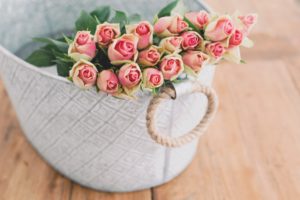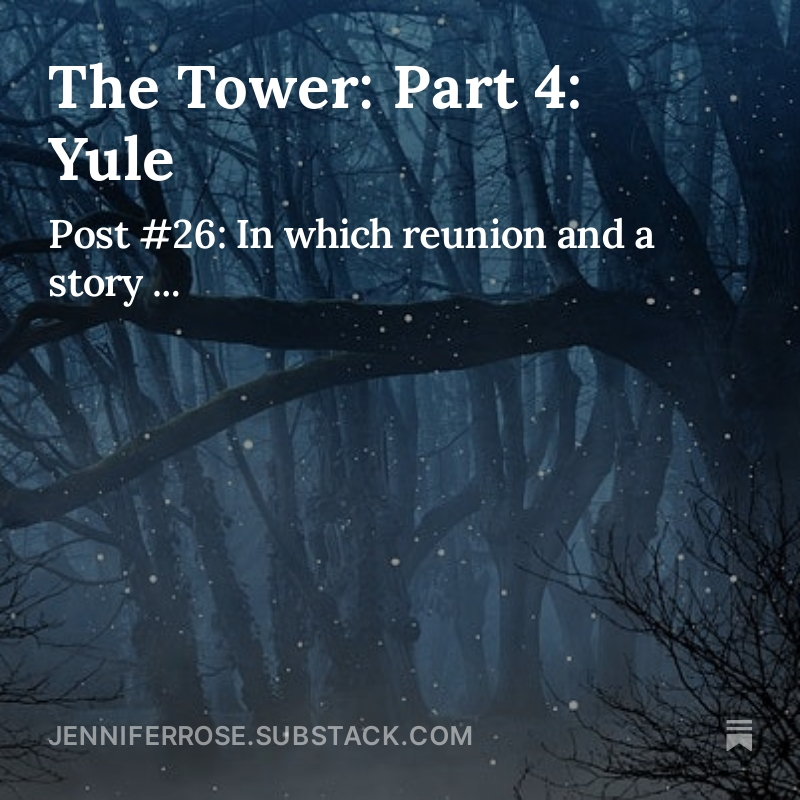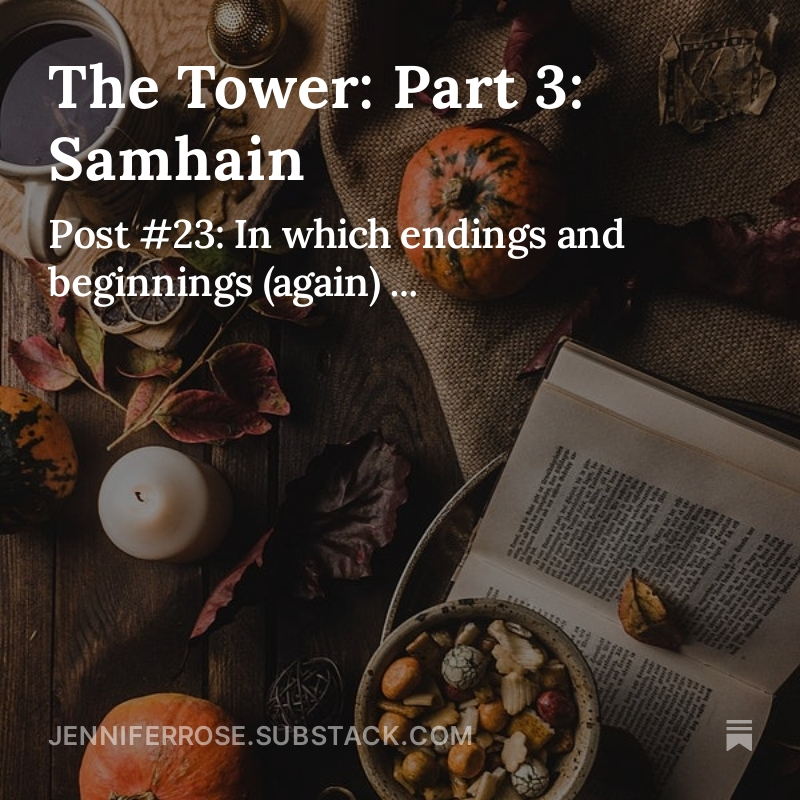by Jenny Rose | Jul 14, 2016 | A Flourishing Woman, The Journey
This blog is my resignation from a job I’ve held my whole life.

Photo by Anna Dziubinska on Unsplash
It’s a big world with a lot of people in it, all living their lives, thinking their thoughts, trying to find a place to stand, trying to survive, trying to get loved. I’m just like that. I’m not rich or famous, especially intelligent or beautiful or talented. I don’t do social media. I’m not a special success or failure.
I’ve done all the average things most every American does. Grew up, got a decent education, worked, got married, had a couple of kids, got divorced, moved, got older, watched the kids grow up and fly away, worried about money, tried to do my best, made a lot of mistakes.
But all that was incidental to my real job.
My real job has been to please people.
I wonder how many of you read that last line and felt sick. I know I’m not alone. I know you’re out there, as invisible and tired as I am.
I now intend to Fail to Please Others.
That’s not to say I refuse to ever please anyone again. No. That would only be another kind of jail. What I mean is now my choices are not based on what he/she wants me to do, say or be. Now my choices are based on The Right Thing To Do — for me.
I nearly always know what people want from me. I nearly always can identify The Right Thing To Do for myself. The problem is they’re rarely the same choice and I always, infallibly, reliably, boringly, sickeningly choose to please.
Why do I do this? Oh, that’s easy.
I believe I won’t be loved if I don’t do it.
Now think about that. Think about a life empty of people who love you. No one. No parent, no family member, no child, friend, lover. Think about believing, all the way to the soles of your feet, that if you Fail to Please, people around you will withdraw or withhold their love and/or leave. Forever. As in permanently.
I assure you I understand, as all People Pleasers do, that pleasing others to get loved doesn’t really work. Oh, in the moment you might get rewarded for it, but it never ends, the pleasing. Once isn’t enough. 100,000 times isn’t enough. Also, some people are impossible to please. Someone like that probably taught us this dreadful belief in the first place.
Well, life has just given me exactly what I needed to finally decide to make a change. Something happened, and I said no.
I never say no — at least not when I know the answer wanted is yes.
The answer wanted this time was yes, and I said no, because that was the true answer, the honest answer, the Right-Thing-To-Do-for-myself answer. I said it repeatedly to the two people whom I love best in all the world. There was upset, and outrage, and fury. There was a scene, not a violent smash-the-dishes-scene but a verbal scene, the kind I’ve spent my whole life trying desperately to avoid, the kind of scene that makes me want to run out the door and throw up under a bush. The word “betrayal” was used. But something about the whole situation woke up a deep streak of stubbornness in my nature and I just kept saying no.
I laid awake all night crying, telling myself now I was truly alone, as these two who heard “no” from me are the center of my heart.
But the next day I asked one of them if he still loved me, even though I said no.
And he said yes.
Now, bear with me while I explain what all this has to do with this blog.
I’m a writer. I’ve got a finished manuscript, another started, and am exploring the hair-raising process of getting published. I’ve always been a writer, since I was a child, but I’ve always tried to stifle it, hide it, ignore it and otherwise amputate the desire to do it from my life.
Why?
Because I find I can’t write anything but the truth.
My truth is unacceptable.
It Fails To Please.
The digital age has swept over us and people blog. I read lots of blogs. I’ve wanted to blog myself for a long time.
But I haven’t.
Why?
Because everything I want to blog about will Fail To Please — someone.
This is my first post. I’m still building the site. Feel free to explore and watch for new additions. Check back for weekly posts. Please leave a comment. Let’s have a conversation. If you’re hateful or disrespectful or a spammer I will block you without apology.
Please accept my resignation from the role of People Pleaser, effective immediately.

Photo by Roman Kraft on Unsplash
All content on this site ©2016
Jennifer Rose
except where otherwise noted
by Jenny Rose | Aug 31, 2024 | A Flourishing Woman, The Journey
In July of 2016 I wrote my first post on this blog, a letter of resignation from people pleasing. Since then, that post has had more than 20,000 views. A comparatively modest number for the internet, but for me personally an astounding one.
Now, in August of 2024, I’m writing another letter, this one a heartfelt thank you to all of you who read my words, commented, and sent my work on to others over the years. I hope my posts will continue to find those who are treading some of the same paths I have.
When I began this blog, the only goal I could identify was to have the courage to do it. I wasn’t sure who I was or what I thought and I didn’t know how to use my true voice. I felt as though I was fighting for my life. I didn’t expect anyone would read it, but I knew I needed to write it. I wasn’t sure why, exactly, but I knew I had to, and I knew intuitively whatever I wrote here would be real and true and honest. I wanted to find that woman, know her, and reclaim her if I could.

Photo by Ryan Moreno on Unsplash
I did not imagine how powerful the practice of blogging would be for me. I did not dream of the healing, the growth and learning, and the self-acceptance I’ve achieved.
I almost never take vacations. I don’t say that with pride or a sense of superiority. In fact, I’m determined to give myself more regular breaks in the future. I’m off work when sick or injured, of course. We were furloughed during the pandemic, but that hardly felt like a vacation. However, for two weeks the pool facility where I work is closed down for maintenance, and I was amazed at how I looked forward to these two weeks, how I longed for them.
I’m not traveling, or doing anything wildly different or special, but the gift of time is exquisite. Time without clocks or my phone. Time in the garden. Hours in which to read and write. Time to sit in the sun, take a catnap. Time like a ripple of playful music, empty, inviting, unpressured. Time to think and feel and drift. Time for inspiration and intuition.
When I feel like I don’t have enough time during normal working life, I’m harsh with myself. I tell myself we all find time to do the things that matter and if I’m not, either I don’t really want to do what I think I want to do or I’m doing life WRONG. Again. I’m lazy, I’m disorganized, I’m ineffective, I’m wasting time, and I’m making excuses. So I work harder, get up a little earlier. I try to be more organized. I simplify my routines. I keep moving, producing, and doing.
In these days of my vacation, however, I discover when I have time, real, unlimited, unbounded time, I fall joyfully into exactly what I most want to do (working on my third book), like plunging into a lazy summer river.
I’ve been asking myself what needs to happen for me to follow my heart and soul into writing this book and all the books after it. Now, when the voice of my intuition says ‘more time,’ I’m listening instead of attacking myself. Maybe my story does need more of me than I’ve been giving it, more presence, more space, more energy, more time.
I’ve been thinking about the shape of my life, what I do in a day, a week, a month. I’ve wondered what I can take out. Not work. Not gardening. Not exercise. Not reading. Not Substack, where I serial post my fiction and occasional essays. It occurred to me to wonder if I’m ready to let go of Harvesting Stones.
This morning, while driving to get groceries in early morning rain, I found myself mentally drafting this post, and I thought, I guess I am ready. And I felt sad. Thunder rolled, as it had been all morning. The wipers went back and forth. I sat looking at a stoplight, waiting for the green arrow, and for a moment I let Harvesting Stones drift away, shining, heavy with words, a creased and folded roadmap of my psyche, so full of effort and vulnerability. I imagined space and time and energy in the place where it had been and I thought about letting die what must.
Sadness was there, yes, but also peace. A sense of rightness. I’ve found an interactive community on Substack where comments turn into discussions and inspiration. I like the creative energy there, the collaborative tools and people. Harvesting Stones has been a solo endeavor, hugely growthful when I began because it forced me out of hiding, but now the challenge is gone and I’m ready for more interaction, more connection, and the endless fascination of writing compelling fiction.
It’s been some time since I’ve seen the path ahead so clearly in my writing life, and I want to find out where it leads.
I’m going to leave Harvesting Stones up, just as it is, in the hopes people will continue to stumble across it and find it useful. I will still receive and answer comments and maintain the site. You can always find me on Substack. My work there is free to read, just as it’s been here.
This blog has been one of the most significant things I’ve ever done. Letting go is hard. I cannot close this chapter in my life without thanking my emotional intelligence coach. Without him, I would not be in Maine. I would not have started blogging. I would not have written two books and be working on a third. I’m not sure I’d even be alive. I certainly would not have reclaimed my health and joy. I did the work, but he showed me the way.
Thank you all for being part of my journey. Come see me on Substack!

By Danijel Durkovic on Unsplash
by Jenny Rose | May 4, 2017 | Choice, Power
Last Friday I resigned from my medical transcription job. Shortly after emailing my letter of resignation to my supervisor, she called me, wanting to know why.
I told her the truth. I don’t feel as though my contribution matters. I don’t like the company culture of perfectionism and high stress. I don’t feel valued as an employee, and my skills and talents are worth more than I’m receiving.

Photo by rawpixel.com on Unsplash
We parted in a friendly manner. She assured me I was eligible for re-hire any time and wished me well. I wished her and the rest of the team well. Cyber handshakes and smiles all around.
I’m in the middle of selling a property back in Colorado. I currently have wonderful renters in the house. They’ve been honest, cooperative, open and have done every single thing they’ve said they would do. They’ve become friends. I’m faxing paperwork, including the lease with these tenants, to Colorado and working with my Colorado real estate agent long distance. The agent expressed surprise that our rental agreement didn’t contain language about punitive consequences if the tenants suddenly decided to break the lease and leave.
It never entered my head to limit my tenants’ choice to leave if they were unhappy. Obviously, at least one property professional feels this is inappropriate business practice, but why would I want to force two people whom I respect and like to stay in a situation that wasn’t working for them?
Answer: I wouldn’t want to, I didn’t want to and I don’t want to.
Last evening I had a long conversation with one of my sons, and among the things we talked about was the idea of noticing how things are within ourselves and the choices we make about our own unhappiness and discomfort.
This morning, as I fried bacon and sausage and worked in the kitchen, I was thinking about this week’s post, trying to come up with something I wanted to write about from my current experience, and suddenly all these interactions lined up in my head (Clunk! Clunk! Clunk!) and I thought, well, there it is. I want to write about quitting.
What do you think of when you think of quitting?

Photo by Milada Vigerova on Unsplash
I think of the word “should,” as in should quit smoking, should quit drinking, should quit eating so much sugar, should quit fill-in-the-blank. These are the kind of circumstances under which quitting is supported and validated, but the “should” is an instrument of shame, guilt and fear, as well as a thoroughly ineffective motivator.
I was taught being a quitter or a dropper outer is a desperately mortifying thing. Quitting is associated with betrayal, abandonment, failure, letting others down and weakness.
Quitting is often an act of aggression. It’s what we do when we’ve hung on by our fingernails until they’ve torn out, one by one, and we have to let go or die. It’s hitting bottom. It’s burnout, breakdown and nothing left to lose, often accompanied by scenes, meltdowns and an exchange of insults.
Quitting is selfish and irresponsible. Choosing to be happy is an embarrassing thing to admit. We’re told If everyone did what made them happy, everything would unravel. Nobody would work. Important things wouldn’t get done. The economy would collapse.
There are cultural consequences for quitting. The label “quitter” impairs our ability to get hired, find stable relationships or make financial choices. A quitter is unreliable and untrustworthy at best. Someone who quits their marriage, family or children is so despicable as to be unforgiveable in some cases.
The word quit, according to a quick search, means to leave a place, resign from a job or stop or discontinue an activity. In short, it’s a word that defines a choice. Interestingly, one of its origins is Middle English, in which it means “set free.”
Set free sounds a lot more positive than quitting, doesn’t it?
It occurs to me that the whole idea of quitting is rooted in power. To quit is to stop. How is it that the culture is so unfriendly and unsupportive, for the most part, of making a choice to stop? Why are we so consistently and pervasively discouraged from saying no, from quitting, from changing?
I’ve written before about the yes and the no. To be in our full power, both consent and dissent have to be available to us. We have to be able to make a real choice. The inability to freely choose points to a power-over situation, and it doesn’t matter if it’s work related, relationship related, addiction related or some internal limitation like fear. Something or someone is interfering with our power to freely choose if we can’t make a choice to quit.
Said a different way, the problem is not so much the addictive substance, the miserable job, the narcissistic family member or the abusive romantic relationship. The problem is we’ve been systematically amputated from our full power to choose.
Sadly, this is a consequence, at least in part, of our current educational system in the United States. It doesn’t work for a lot of kids. It didn’t work for me. It didn’t work for my kids. I told my sons the same thing I was taught when they complained. Education is important. Everyone has to go to school. It’s the law. We all have to do things we don’t want to. Being happy doesn’t matter.
Ugh. I wish I hadn’t believed that. I wish I hadn’t said it, and more than anything I wish I’d listened to their distress and taught them to respond to it appropriately by responding to it appropriately myself. At the time, all I had was what I’d been taught, and I’m absolutely certain my own mother taught me the only thing she knew as well.

Photo by Gemma Evans on Unsplash
The point is few of us learn how to respond to our discomfort or unhappiness, either by expressing it appropriately or taking action to help ourselves. Public education certainly doesn’t teach it. The way we work in this country doesn’t support it. Patriarchy in general doesn’t validate self-reflection, honest communication, or simply saying, “No more. This isn’t working for me. I’m stopping. I’m quitting.”
On the other hand, we’re great at demanding and commanding, as in “You should … You will … You must … You have to …” However, living in a cage of internalized and externalized shoulds is more power-over. When the shoulds have our power, we’re not free to choose. I know, because that’s how I’ve lived most of my life.
One of the hallmarks of power-over is its resistance to change. Change threatens the status quo. Traditional marriage vows are forever, no matter what. Many jobs reward length of service. We’re encouraged to grow up, settle down, get a stable life. Loyalty, dependability, reliability and predictability are all rooted in not changing.
But we do change. Our bodies change. Our needs and desires change. We learn new information. The things that captivate and delight us change. The best of us learn, grow, question, seek new experience, dance elegantly with challenge and tension, and develop a healthy relationship with being wrong. The best of us spend a lifetime making friends with our changing selves, investigating our motivations, our patterns, our behaviors and beliefs, our weaknesses and strengths, and doing battle with our fears and demons.
A relationship, job, priority or place may be a perfect fit at some point in our lives, and then be outgrown. A coping mechanism or response may work very well, even save our lives at one time, and cripple us at another. Life is always changing. The ability to flow with change, to welcome it and play with it, responding with free choice after free choice, defines a well-lived, powerful, elegant life
Quitting, like boredom, has a bad reputation. I suspect this is mostly due to a cultural smear campaign. My son is in his 20s, and as he shared parts of his experience with me, I realized we’ve arrived at the same place, he’s just 30 years ahead of his late-blooming mother. He’s reclaiming his power to respond to his own discomfort and distress and choose what to do, based on prior choices and how they worked out. He’s not waiting until he can no longer bear his unhappiness. He’s not quitting in a blaze of hand grenades and gunfire. He’s not self-destructing. He’s allowing himself to stop, to change, to leave. He’s setting himself free of what doesn’t work for him, and he’s doing it without guilt or shame or the need for outside validation.
Quitting is an art. I can be done with respect, gratitude and dignity. It can be a gift of love and authenticity to self and others. The right person for a job, place or activity is not someone who hates the job, place or activity. The right job, place or activity for us is not the one that makes us unhappy. Commitment, responsibility and keeping our word are all important things, but not unto death. Not unto madness and broken-down health. We are allowed to set ourselves free. We are allowed to change. We are allowed to learn. We are allowed to try and fail and move on.
I began this project of blogging with a letter of resignation. This week I sent another letter of resignation. In both cases, I hung on long after I knew I was miserable because I was afraid to make a change. I have more work to do in building trust with myself, but I’ve made a start.
I quit. My daily crime.
All content on this site ©2017
Jennifer Rose
except where otherwise noted
by Jenny Rose | Jul 20, 2024 | A Flourishing Woman, Self-Love
The more battered I feel by the news cycle and the daily externals of my world, the more important it is to spend time in solitude, focusing inward and practicing love and trust with myself.

Photo by Cristian Newman on Unsplash
(It sounds delightful, doesn’t it? So wise and functionally adult! It doesn’t read like tears; trauma; dumping feelings onto the page; wrestling with fear, despair, perfectionism, heat, humidity, housework, and (most recently) a fiery case of athlete’s foot while the garden turns into a steaming jungle outside my locked and blinded windows and the air conditioner gently roars.)
I recently reread The Mermaid Chair by Sue Monk Kidd. I haven’t read it in a long time, but it was next on the shelf, so I cracked it open. I came across a line I don’t remember and evidently didn’t remark on previously: “…I’d never done anything that took my own breath away …”
The speaker is a middle-aged woman and that line grabbed my attention.
We are consumed by externals. The male gaze. The public eye. What others think of our looks, our words, our actions. Is our virtue signaling adequate and prominent? Are we pleasing the right people? Are we flourishing our flags with sufficient outrage and hostility? Are our masks and identities firmly in place?
The more we focus on externals, the less we pay attention to our relationship with ourselves and the more broken we become.
Why don’t we think about taking our own breath away?
This might not seem important. After all, what’s more exquisite than the feeling of being in love? The sight and smell, sound, taste, and texture of the loved one. Every expression. Every word. Every insignificant detail, past and present, is breathtaking. For a time. How could we ever hope to compete with that feeling, that excitement?
But what happens if we never take our own breath away?

Photo by Jeremy Bishop on Unsplash
Some of my favorite stories are oral tales about the selchies; creatures who are men and women on the land and seals in the sea. Most of the time the old stories are about a woman whose sealskin is stolen by a man; she is coerced into staying with him, often raising a family, with the promise he will one day return her skin. Though the captured selchie may love her children and even the man, as time passes she begins to lose her vitality and wither, for she is cut off from the sea, a part of who she is. She must have what she is made of to be whole.
As a young woman, I had no thought in my head beyond finding a husband, someone who wanted me and would love me. I didn’t think about the love I needed to feel for him; I assumed I’d do whatever it took to be a “good wife.”
Two divorces later, much older and wiser, I realize how sad this is. Now I know no child or lover, no matter how wanted or beloved, can ever leave us breathless in the same way we can ourselves. Not only that, when we rest all our being on external love, when the object of our love leaves and the feeling is gone we are left more impoverished than before, more embittered, more lost.
Taking our own breath away gives us something we never lose; amazement for our own courage, or determination, or creativity. We always remember that thing we did, and marvel at ourselves. We develop confidence and trust in ourselves. We know we can struggle through obstacles, defy odds, learn a new skill, finish a big project, or take a leap in the dark. We know we can face our own fears and beliefs, and challenge them.
I believe this is a big part of what a midlife crisis is about. If we don’t push ourselves beyond our comfort level we wake up one day bored and apathetic, and wonder if this is it. Is this all life is, the familiar round of work, home, family, and friends?

Photo by Joshua Rawson-Harris on Unsplash
We begin to think and dream about something more, that milestone we never achieved, that place we never visited, the opinion we never expressed, the art we never created, the truth we never dared tell.
We want … something. We need … something. Typically, we spend a lot of money trying to fill our craving, but nothing works for long because we’re looking for some intangible piece of ourselves, something stolen, something lost, something rejected. Perhaps we’re searching for our own permission or courage. Our quest becomes internal rather than external because (to our shame) we have a good life, a good job, a good-enough spouse or lover, a beloved child, yet we are not satisfied.
We want what we are made of.
No one can tell us what that is. No one knows. We have hidden it successfully from ourselves all our lives, after all. If we are lucky, one day we know what to do and have the means to do it. The outcome doesn’t matter. What matters is that we do it, we leap without a net, we create in a frenzy, we open our throats and speak our truth at last.
We take our own breath away.
Moving to Maine from Colorado was like that for me. How did I do it? I have no idea. I do remember my determination, though. I remember saying to myself I was going to do this thing no matter how impossible it was, no matter what others said about it (and me), no matter how many obstacles I encountered (I borrowed money from a friend for the first time in my life), no matter how terrified and anguished I was, I was going to do it. If I had to crawl on my belly all the way, I was going to do it.
And I did (in a U-Haul, not on my belly). And it took my breath away. Still does.
In general I’m a cautious, even conservative person. (In spite of my friend who affectionately calls me a dirty hippy!) I think things through carefully. I research all the options. I consider consequences. But sometimes this longing to find and express what we are made of is so strong we can’t think about it calmly and rationally. We are compelled beyond all that, pulled helplessly by the strength of our need to reclaim and express some lost part of ourselves. We don’t care about consequences. They are less important than finding ourselves.
I wonder if it’s a human need to experience this riptide at least once, to operate only on instinct, intuition, passion, and raw determination. Maybe it’s at least as important to follow our creativity and curiosity as it is to set concrete goals and make plans. Maybe the ability to be impulsive and unreliable is as important as dependability and careful planning.
In taking my own breath away, I’ve lived with a bad boy/man, had an unplanned pregnancy, and caught an STD. I’ve learned to dance. I’ve created visual art. I’ve written 2 books and started a third. I’ve become an oral storyteller. I’ve started and later redesigned my blog and published my fiction serially on Substack. I’ve moved to Maine. I regret none of these, no matter the consequences, which in some cases were painful.
What will I do next? I don’t know. But I’m not afraid to take my own breath away.
Questions:
- What’s the most breathtaking experience of your life?
- What part of what you’re made of are you longing for?
- How have you taken your own breath away?
- Who or what are you waiting for to take your breath away?
Leave a comment below!
To read my fiction, serially published free every week, go here: 
by Jenny Rose | Jun 22, 2024 | Emotional Intelligence, Needs
In a recent conversation, someone asserted to me that ultimately everyone does what they want. I felt an immediate fury. That does not describe my life at all. I chewed on my outrage and resentment for a few weeks, simmering, until I decided to get over it and figure out why I was so hijacked.
I was immediately lost in the puckerbrush. Making choices about what we do and don’t do is intimately tied to needs and wants, and I have yet to be able to distinguish between the two once beyond the level of survival needs, or find any kind of clarity from someone else. Needs and wants are unpleasant territory I don’t want to explore. (See? There it is. I don’t want to. Yet I am, and I might need to.)

Photo by Bryan Minear on Unsplash
Then there’s the whole actions versus words aspect. People say they want things but don’t act accordingly. If we really want something, our behavior reflects it. If our behavior does not reflect our stated wants, we’re deceiving ourselves, or someone else, or both. I deeply distrust mixed messages. More unpleasant territory and old trauma.
Choice is in there, too. Choice is a big subject and a major theme in this blog. As I’ve mused on the statement ‘we all do what we want to do’ and made notes (you know I always make notes), I’ve wondered how we can compare a parent in some war-torn place attempting to keep their starving child alive another day with a wealthy person trying to decide if they want to fly their private plane to Paris for dinner or stay in and watch a movie in their in-home theater and have their chef prepare a seven-course meal. With wine, naturally.
One person has limited choices, all excruciating, to achieve continued survival for a few hours. The other has almost unlimited choices, all luxuries. How can I possibly compare the two? Can we say the parent trying to keep their child alive is doing what they want to do? Come on! Yet they do want to keep their child alive, right?
Perhaps it seems complicated and confusing because it’s complicated and confusing.
I wound up with a page full of notes, some sobering personal revelations, and a hairball.
On an internet search, I found articles pointing out the distinction between doing exactly what we want to do in any given moment (a toddler or a hedonist) and doing things we don’t want to do in service to an outcome we do want. That made sense to me.
If we focus on wanted outcomes rather than individual actions, we must have the ability to plan, look ahead, anticipate, and understand possible consequences of our actions. We also must attempt to predict the responses and reactions of the people around us to our actions, which means we have to understand something about emotional intelligence …

Photo by Manuel Sardo on Unsplash
… and now we’re back in the puckerbrush. I hate predictions. I don’t like leaps of faith. (I have a magnet on my fridge that says “Leap and the net will appear.” I don’t know why I keep it. It makes me mad every time I read it. Show me the warranty on that net. Show me the weight testing. Show me the damn net, in fact. Who will set it up when I leap? Are they paying attention or looking at their phone?) I trust my intuition, but I know I can be wrong. People are unpredictable. Life is unpredictable.
And yet we humans, including me, make choices all day long every day based on what we think will or might or could happen next. I’ve written about attachment to outcomes before. As I get older I’ve replaced a lot of my desired specific outcomes with simply wanting to know I did my best, regardless of outcomes. I may not like the outcome I get, but my integrity remains intact.
And then there are the people who don’t seem to understand actions and consequences in any kind of relationship. They choose what they choose in the moment and are hurt and/or outraged to discover the downstream consequences of that choice, especially in the context of many other choices. I observe this is a frequent divide along male/female lines. Women generally see everything as connected. Men generally see most things as discrete, in their own box. This is just one reason why I think “romantic” male/female relationships can be so devastating. We are often on different pages without knowing it.
If it’s true that we all do what we want in service to a desired outcome, what happens when my choices collide with yours? If you perceive me as blocking progress to your desired outcome you’re going to feel angry, and vice versa. We’re going to want each other to make different choices aligning with our personal desires. Most of the time, people won’t do that. We’re all attached to the outcomes we want.
A big piece of this for me is emotional labor, that hidden torrent winding through my life, sweeping away incalculable energy, time, and innocence. One of my priorities is healthy relationships. Close healthy relationships require time and attention; the ability to make choices for the good of the relationship rather than considering only our own wants and needs. This is an ongoing practice, not doing something we really don’t want to do once every six months and expecting applause. It means we have to face our own demons, learn to communicate clearly and honestly, negotiate, share power, and problem solve. It means boundaries and respect. It means reciprocity.
Having learned about reciprocity, I now prioritize my relationships to the degree the other does. I will not sign up to do all the emotional labor. I’m not interested in a close relationship like that. The price is too high. I’d rather put my energy into my relationship with myself. At least I appreciate my own efforts!
My conclusion about this ‘we all do what we want’ thing (gritted teeth – it still makes me mad), is it may be true if we consider our choices in the context of outcomes. I’ve made a lot of choices out of the clear knowledge that they were simply the right thing to do, too, choices that have been terrible for me, terrible in some of their consequences, yet ultimately still were the right thing for me to do. I had no outcome in mind. I don’t regret those kinds of choices, but they left permanent scars.

Photo by Cristian Newman on Unsplash
I want to blame others for all the time I’ve spent doing things I didn’t want to do, but it seems what we do and don’t do are entirely in our own hands, our own responsibility. Our lives are built on the choices we make, big and small, every hour of every day. If we don’t like our lives, we need to pay attention. Perhaps the useful question to ask ourselves if we hate what we’re doing at any given moment is, “Why am I doing this?” If we’re focused on a particular desired outcome, we may need to stop and think about whether our actions are effective in getting us there. Spending years of our lives desperately hoping and trying to reach an outcome and doing things we hate is not effective. I know this from personal experience. Our wants and needs change over time; what we once longed for may no longer be something we’re interested in. Sometimes we need to reality check ourselves. If we’ve been trying to get loved, for example, or please someone for a long period of time, it might be time to acknowledge our goal is not attainable or not worth attaining. Sometimes no matter how hard we work for an outcome it’s not achievable.
Then there’s the flip side: None of us do what we don’t want to do. That one is equally hard for me to swallow, but that’s a conversation for another day.
Questions:
- How much of each day do you spend doing things you don’t want to do? Why?
- What desired outcome(s) in your life requires you to do things you don’t want to do?
- Do you see your daily choices as isolated or part of a larger context attached to your wants and needs?
- Do you feel forced to labor emotionally? What would happen if you stopped?
- Who in your life reciprocates your level of emotional labor?
Leave a comment below!
To read my fiction, serially published free every week, go here: 













